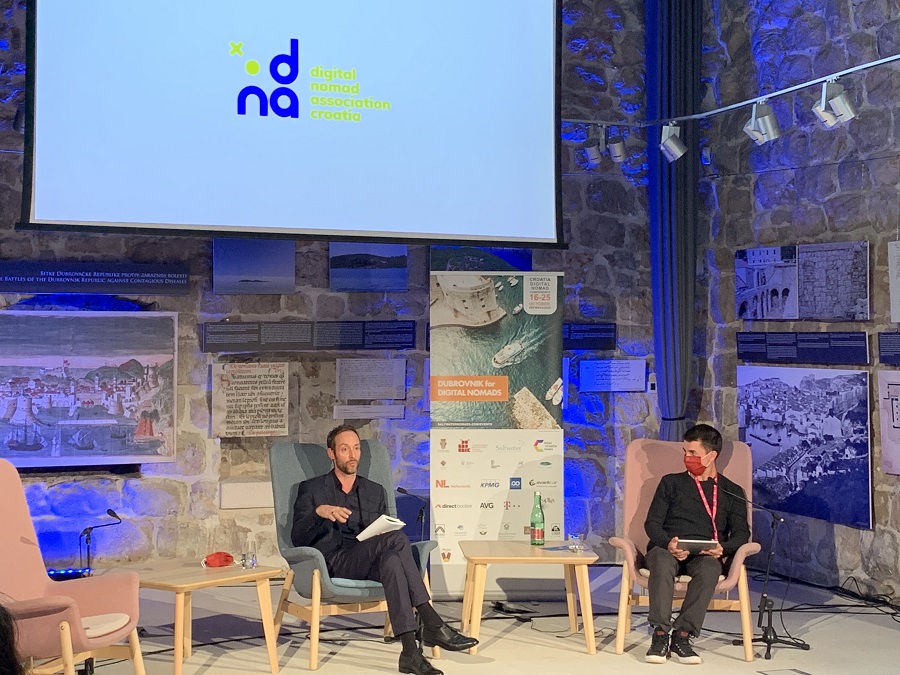Glavic Clinic Thanks Jan de Jong with Free Brain Injury Therapy for Dutch National
November 22, 2020 - A very generous gesture from Glavic Clinic to thank Dutch entrepreneur Jan de Jong for his efforts to promote Croatia.
How cool is this?
Last month in Dubrovnik, the first-ever digital nomad conference was held in Croatia. The last presentation on the first day of Dubrovnik for Digital Nomads was from the deputy director of Glavic Clinic, Nikolina Kurtela.
After a stimulating first day, I don't think I was the only one with an eye on the wine which awaited after Nikolina's 10-minute presentation. I decided to stay and listen out of politeness.
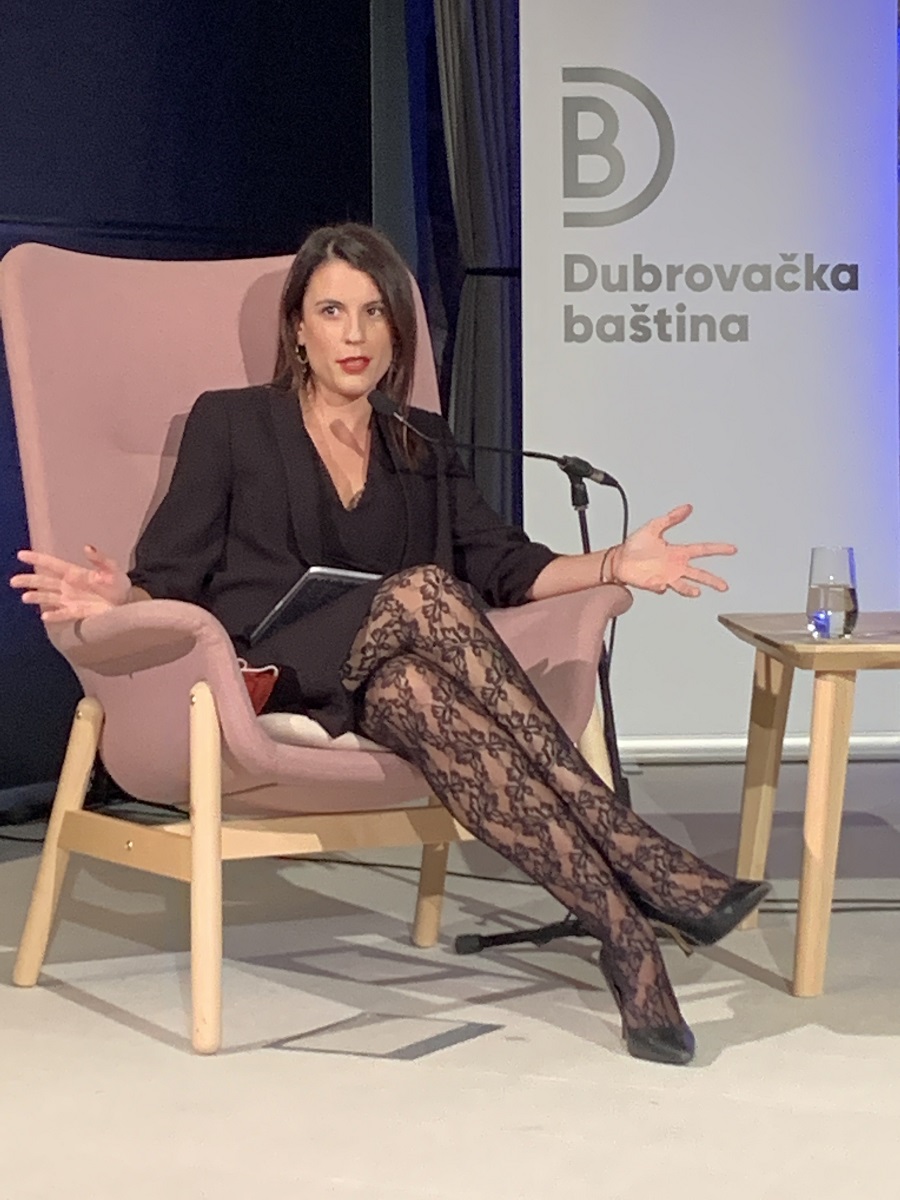
I am very glad I did. Apart from being the funniest speaker of the day, Nikolina made the announcement of the first day - that Glavic Clinic would offer all medical services for free for a year for digital nomads in Dubrovnik.
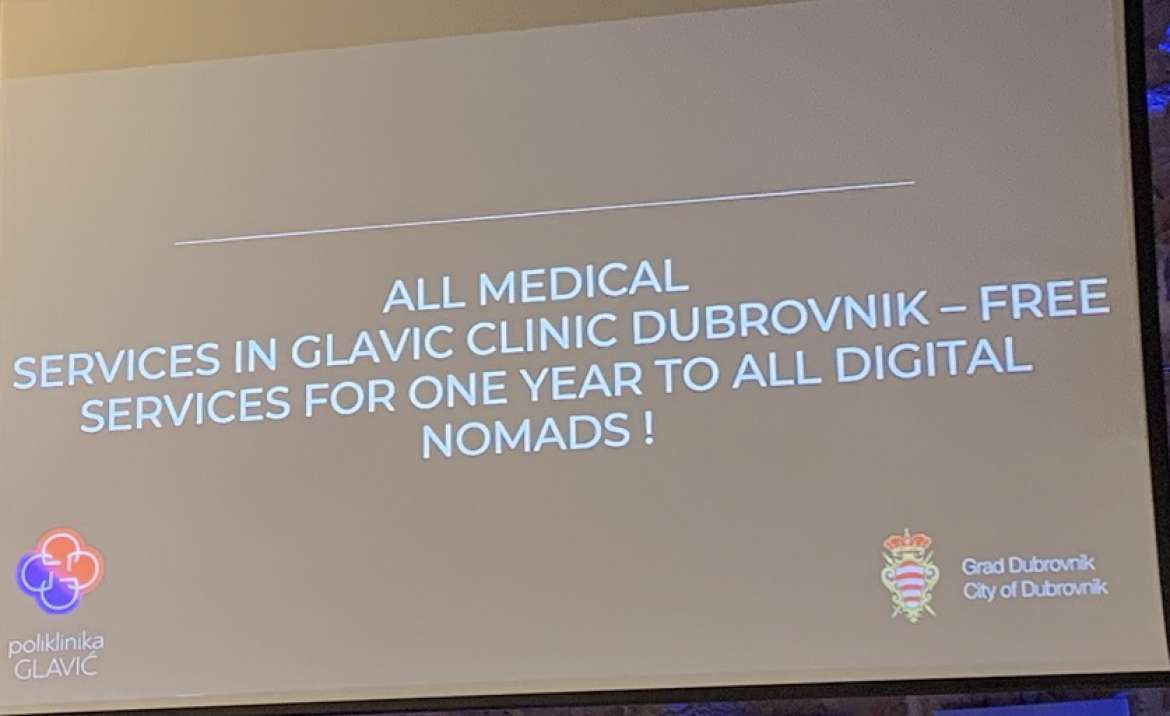
My first inkling was that this was just a marketing stunt from the clinic, and I followed up with Nikolina over that glass (ok, three) of wine after the conference. She kindly agreed to an email interview about Glavic Clinic and digital nomads, which you can read here.
During that interview and my subsequent research, I learned that, far from being a publicity stunt, Glavic Clinic has arguably the strongest humanitarian medical treatment programme in the region, and it regularly takes on patients for free. Impressive stuff.
And then last night, a LinkedIn post from Dutch entrepreneur and poster child of the Croatian digital nomad visa, Jan de Jong, caught my eye. When not planning to turn Croatia into a net food exporter once more, initially with his tomato project in northern Croatia, Jan has been instrumental in pushing the digital nomad visa forward. A bundle of Dutch positivity trying to Make Croatia Great Again.
His efforts have earned him much well-deserved praise, thanks and media attention, but perhaps nothing quite like the response from Glavic Clinic, as his LinkedIn update explained:
A few weeks ago, something completely unexpected & extraordinary happened - so amazing that I felt my eyes starting to get wet. A few weeks ago, something completely unexpected & extraordinary happened - so amazing that I felt my eyes starting to get wet.
I was invited to visit Glavic Clinic in Zagreb, where I met the owner Josko Glavic. It was amazing to see how his clinic is using robots to help patients recover from terrible injuries.
After Joško showed me his clinic he said:
Jan, you have been doing so much to help Croatia ?? move forward...we from Glavic Clinic would like to do something in return for somebody from the country where you were born - the Netherlands.
He continues...
You can choose somebody from the Netherlands who we will give a complete rehabilitation treatment for free as part of our charity program.
This was the moment I had to bite my lip and pretend I had something in my eye. ?
Right after the meeting, I called my mom. She right away told me about a young women from my home town, Bodegraven, who had suffered brain injury as a result of a horrific accident.
Her name is Shannen Bulk and she will come to Zagreb on 14.12. to receive 8 full weeks of rehabilitation treatment from Glavic Clinic - 100% free of charge.
Give this post a ❤ to show some love to Josko Glavic and his team.
Follow Glavic Clinic on #LinkedIn.
#Croatia#charity#livingthecroatiandream
Fabulous stuff. We will continue to follow this story and Shannen's progress during her time in Croatia.
You can learn more about Glavic Clinic on the official website.
For the latest news on the digital nomad visa, follow the dedicated TCN nomad section.
Croatia is One Step Closer to Introducing Digital Nomad Visa
November 11, 2020 – Last week, the Croatian government took the first step to introducing a digital nomad visa. In his statement, Prime Minister Andrej Plenković pointed out that the Law on Foreigners, under which the digital nomad visa is regulated, is an important law.
As Lider Media / Nikolina Oršulić reports, the first concrete regulatory steps have been taken to legalize the residence and work of digital nomads in Croatia. Namely, on Thursday, November 5, 2020, at the Government session, the final proposal of the Law on Foreigners was adopted, which will be sent to the Croatian Parliament.
"I think this is an important law. We are among the first countries to legally regulate the issue of digital nomads, and this will be accompanied by appropriate changes to the law in the tax domain, as well as in the health insurance domain," said Prime Minister Andrej Plenković, announcing further legislative steps.
The idea of launching digital nomad visas was first presented in Croatia by Dutch entrepreneur Jan de Jong, who has been building new business opportunities in Croatia for more than a decade.
"I can say that I am satisfied with the pace at which we are working to bring the legislative package needed to attract digital nomads to Croatia. We are currently making great steps forward in answering health insurance questions. With the Prime Minister's statement, we have an official obligation from the highest political level to continue to make extraordinary efforts to adapt the laws regarding taxation and health insurance. I am happy that Croatia will become the leading country in the world in attracting digital nomads," said the entrepreneur for Lider Media.
The legislative story has heated up, so the initiator of introducing a digital nomad visa is already working on the next step – the establishment of a kind of central point to support digital nomads.
"Since we are going in the right direction, I am working on establishing the Croatian Association for Digital Nomads (Digital Nomad Association Croatia - DNA Croatia) whose mission will be to connect digital nomads in Croatia and support them. We are currently in the process of founding this association," said de Jong, who is entering the project with Tanja Polegubić, a returnee from Australia who runs Saltwater Nomads - remote work and lifestyle services for digital nomads in Split, and Karmela Tancabel, a member of the Ilok Cellars (Iločki podrumi) Marketing and Export Board.
The plan is to complete the legislative part to introduce a digital nomad visa by the end of the year, and visas should be available in the first quarter of 2021. In addition to the legal regulation of the status of digital nomads, the draft of the Law on Foreigners brings some other changes.
"The most important novelty is prescribing a new model of employment of foreigners, according to which the employer must first request the implementation of the labor market test from the Employment Bureau to find labor on the domestic market. If there are no unemployed in Croatia, then a request is sent to the Ministry of the Interior seeking an opinion from the Croatian Employment Service. Exceptions to this test are for deficit professions that are usually used during the season," said Interior Minister Davor Božinović at the Government session.
In the draft of the Law on Foreigners, a digital nomad is defined as a third-country national who is employed or performs business through communication technology for a company or own company that is not registered in the Republic of Croatia and does not perform work or provide services to employers in the Republic of Croatia.
For the latest about the digital nomad scene in Croatia, follow the dedicated TCN news section.
After the Visa, Jan de Jong Announces Croatian Digital Nomad Association
October 17, 2020 - Having pioneered the digital nomad visa in Croatia, Dutch entrepreneur Jan de Jong announces plans for a Croatia Digital Nomad Association.
One of the secrets of a happy life in Croatia, I have discovered over the years, is to surround yourself with positive people. With mass emigration, a generally negative media, and complaining in cafes an Olympic sport, it is easy to get sucked into a vortex of negativity. Surround yourself with positive 'can do' people, however, and Croatia looks an altogether different place - a country where its famed lifestyle is matched by positive entrepreneurs bringing positive change to this country.
Two of my favourite beacons of positivity, Tanja Polegubic and Jan de Jong, are down here with me in Dubrovnik at the moment, both playing key roles in the first-ever digital nomad conference in Croatia. Quite by chance (or was it?), both featured in an article I wrote back in May called What Happens in Croatia When Mindset Goes from Default Negative to Opportunity Positive?
Both have been very active since then in the push to promote the huge digital nomad opportunity in Croatia. Dutchman de Jong has spearheaded the initiative for the Croatian digital nomad visa, which was endorsed by Prime Minister Andrej Plenkoviic and looks set to become a reality in the first quarter of 2021, with Australian returnee Polegubic has been leading the coworking and remote work agenda in Croatia with her Saltwater coworking business. Part of her digital nomad vision for Croatia resulted in the Dubrovnik for Digital Nomads conference which kicked off in the former quarantine complex of Lazareti, just outside Dubrovnik's famous walls, last night.
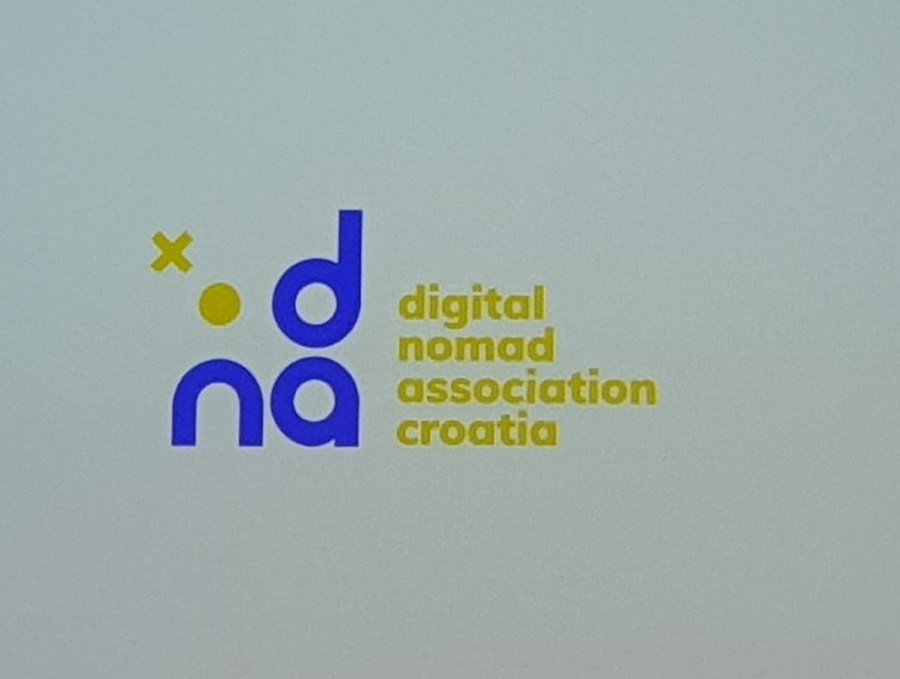
De Jong gave an update on the visa progress during his keynote speech at the conference, as well as answering the many questions that came his way both from the live audience and the global online Zoom audience. Discussions within the ministries are ongoing, but there is an urgency to wrap all the legislation by the end of the year, and de Jong expects the visa to become a reality during the first quarter of 2021. One of the tax architects of the Estonian digital nomad visa - the first in the world and currently the only one in Europe - is also helping the Croatian authorities with the discussions.
Although the visa was expected to dominate de Jong's presentation, the Dutchman had an announcement to make - the imminent launch of the Croatian Digital Nomad Association, which he is co-founding with Polegubic and Karmela Tancabel.
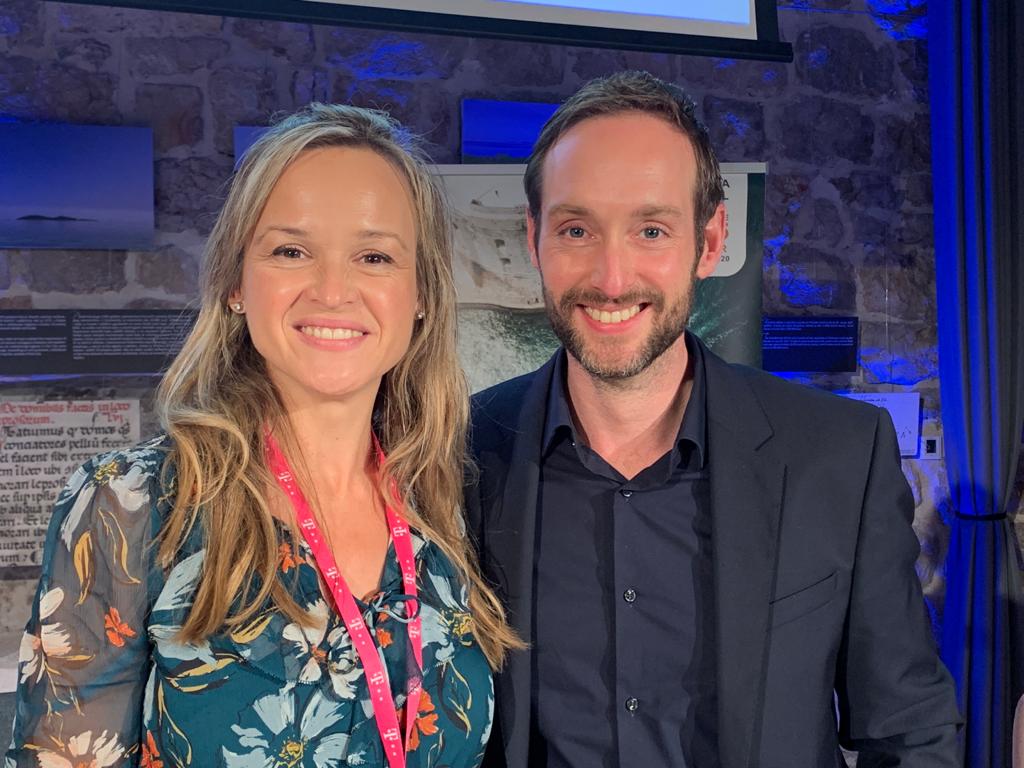
The new digital nomad association will be an excellent addition to Croatia's emerging nomad scene, and with some of its most influential advocates the founders, it starts with a lot of credibility.
The new association has five key aims:
- Information - the new association website, soon to be launched, will be a hub of information for all digital nomad related issues and services.
- Accreditation and certification - the association will work with Croatian businesses which want to offer their services to digital nomads with the introduction of an accreditation and certification scheme. Accommodation providers, for example, will sign up to a code of conduct protecting nomads from sudden hikes in accommodation prices for the tourist season.
- Education - the association will also be engaged in organising events around Croatia promoting the digital nomad agenda. One of the benefits of progressive digital nomads entering Croatian communities is the opportunity to give something back, and the potential to positively impact the Croatian mindset through nomad presentations and seminars in Croatian schools and universities is particularly exciting.
- Community - lifestyle means social life and community for the majority, and the association will be focused on building up a diverse and accessible community for incoming nomads.
- Representation - this new digital nomad initiative is a new venture for Croatia, and there will inevitably be problems and frustrations on the road ahead. The Croatian Digital Nomad Association aims to be a bridge between the authorities and the nomad community to iron out problems and bottlenecks. With de Jong's access to the decision makers who are shaping the digital nomad visa - and their responsiveness to his requests - should prove a useful mechanism to ensure a smoother experience all round.
The association website is currently under construction and will be launched shorted. Stay tuned to the dedicated TCN digital nomad news section for the latest updates.
Read more from the Dubrovnik for Digital Nomads conference - "Croatia Has the Potential To Be World's Number 1 Digital Nomad Destination"
Online Networking for Entrepreneurs as Part of LEAP Summit 2020 Conference
September 27, 2020 - Online networking for entrepreneurs begins next week as part of the LEAP Summit 2020 conference.
Every year, the LEAP Summit brings together over 3,500 participants from Croatia and 40+ countries worldwide, reports Poslovni dnevnik. It focuses on lectures on various multidisciplinary topics such as entrepreneurship, the EU, digital technologies, sustainable development, and career development.
Some of the speakers will be Anne Skare Nielsen (Chief futurist), Jan de Jong (Co-founder & Managing Partner at CROP Hrvatska), Mirko Logozar (educator and founder of Different), Antonija Mršić Radas (Innovation Policy Specialist and EU Funds Manager at Rimac Automobili), Matt Roberts (Global Director of Research & Analytics at F1), Goran Vrabec (CEO of Volim Ljuto), Filip Ljubic (CEO and Founder of QAgency), Paul Bradbury (CEO of Total Croatia News) and many others.
This year, due to the COVID-19 pandemic, the LEAP Summit is going online and offline. From 1 to 2 October, 300 participants will gather at Branimir Minglemall in Zagreb, while everyone else will join the conference via live streaming. The live stream of the conference will be available through the official Facebook page of the LEAP Summit.
The LEAP Summit also includes online business B2B networking in cooperation with the Enterprise Europe Network, HAMAG-BICRO, and the Croatian Chamber of Commerce. This year’s B2B networking will take place entirely online. B2B networking is intended for anyone who wants something more than just lectures; entrepreneurs, teams with entrepreneurial ideas, creatives, freelancers, and all other stakeholders.
Through an online interactive B2B application and online meetings, B2B networking participants have the opportunity to meet potential business partners from around the world and develop future business collaborations.
Participation is entirely free, with mandatory registration at the link.
For the latest travel info, bookmark our main travel info article, which is updated daily.
Read the Croatian Travel Update in your language - now available in 24 languages
CROP Croatia: Jerko Trogrlic and Jan de Jong to Make Croatia Plant Again
September the 21st, 2020 - What happens when a Dutchman and a Dalmatian walk into a room? No, it isn't one of those age old jokes with a bad pun, but the reality behind the CROP Croatia (Hrvatska) story, involving Jerko Trogrlic and Jan de Jong, a Dutch entrepreneur who is already very well known.
"A Dalmatian and a Dutchman are going to plant tomatoes! Nope, it's not a joke", is the beginning of Jerko Trogrlic's announcement, who, along with his partner Jan de Jong, rolled out a story that intrigued the media and numerous local governments throughout Croatia, not to mention investors.
Namely, as agroklub writes, these two longtime friends, and now the founders of CROP Croatia, decided to turn to tomato production. As Jan pointed out, he isn't going to invest in apartments, villas and hotels, but in the high-tech greenhouse production of this particular vegetable.
"The reactions have been excellent. We're being contacted by interested municipalities, as well as by people who want to invest. So, we're still working on a business plan, and we're being contacted by people who want to invest. We're being offered larger amounts than we thought we'd need," Jerko revealed, adding that they want to have their CROP Croatia greenhouses in several locations.
Where exactly they will be depends solely on the proximity of the energy required because tomatoes require heat. ''The location should have excess heat, whether it's from geothermal sources or bioenergy. It must be one that holds water. We've got to have people who can be employed and we've got to have energy," he noted.
It is striking that Croatia imports more than it exports...
The story is being worked out, and it is clear to them that if there is going to be a tomato greenhouse in Dalmatia, they'll have to cool it down more, while in Slavonia and northern Croatia they will look for more heating, but also lighting due to less sunny days. But why tomatoes?
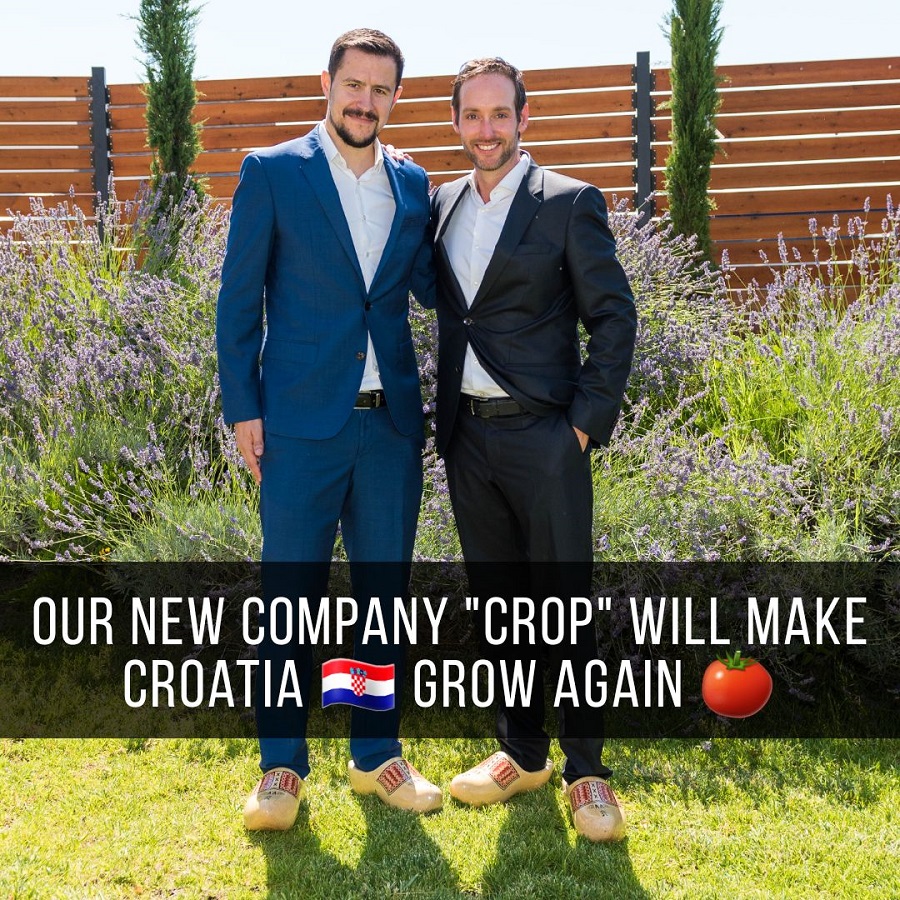
''For years, I've been struck by the fact that Croatia, the country that has fed the entire region, imports more than it exports,'' says Jan de Jong.
"Apart from adoring them privately and even planting them in front of our house, the reason is that our partners from the Netherlands specialise in this production. Their knowledge is what prompted us to embark on this story. Look, we know what entrepreneurship is about, but we're in agriculture a lot, too. We've been learning about it all for the last year, but thanks to our partners we also have the necessary know-how,'' he revealed.
Namely, they are both, so to speak, digital. Jerko is the director of the Split-based public relations agency VAJT, and Jan is the head of Webpower Adria and the initiator of the initiative for the introduction of visas for digital nomads. They are now the proud co-owners of CROP Croatia.
Before founding this joint venture, they researched both the Croatian and European markets and determined that there is a large area available for placement.
''We see a lot more space during the winter because everyone produces during the summer, while this technology allows for high yields even in the winter months where we've so far been almost entirely focused on imports.
The tomato is a very resistant and transportable crop. So, apart from love for it, this is a purely rational decision,'' Jerko emphasised.
One basic goal - Croatia will plant again!
Jan de Jong, a Dutchman who has been living in Croatia for 14 years, which is the same amount of time he has known Trogrlic, also realised that imports perhaps isn't the way to go for Croatia. "For years, I've been struck by the fact that Croatia, the country that has fed the entire region, imports more than it exports," wrote perhaps the most sought-after interlocutor of the media at the moment. Jerko's phone is constantly ringing as well, but he says - Jan receives far more calls and messages and apologises to everyone he doesn't get to answer.
''There are individuals in Croatia who, with more or less success, go through all the hardships of the road to agriculture, and now here come two new lunatics,'' says Jerko Trogrlić.
In conclusion, the plan of the company CROP Croatia is to bring modern technology in the field of agriculture from the Netherlands with only one goal - to make Croatia plant again! The original plan was to build a greenhouse of 50,000 square metres and provide jobs for 70 people, and the planned value of the investment was 100 million kuna. But given the interest in the story of these two friends, their business plan will surely be finalised.
True, he added, on their way into Croatian agricultural waters they discover ''some illogicalities'' in a country where agriculture is a strategic choice. What exactly those illogicalities where, he didn't reveal, but be stressed: "I think there is good will in both the competent ministry and the government to get some things started for the better.
"There are individuals in Croatia who are going through all the hardships of the agricultural journey with more or less success, and now here are two new lunatics," their Facebook post wrote. It should also be emphasised that in addition to achieving the goal of getting Croatia planting again, they are also working on demographic renewal. Both men are family men who have seven children between them.
Jan has four kids and I have three so he is better in that field even though we started at the same time! Our oldest children are seven years old, and the youngest are 9 or 10 months old. He had one more in between,'' laughed Trogrlic.
These entrepreneurs live in Split but are in Zagreb every week, and it will be exciting to watch CROP Croatia grow, both proverbially and literally.
For the latest travel info, bookmark our main travel info article, which is updated daily.
Read the Croatian Travel Update in your language - now available in 24 languages
Lifestyle Check IN Presented to Public for First Time
September 19, 2020 - On Friday, Lifestyle Check IN was presented to the local public for the first time on the terrace of the Radisson Blu Resort in Split. It is a series of business events whose previous two editions were held in Austria.
Lifestyle Check IN is an event whose goal is to connect Croatian companies with European ones, whose products and services nurture the philosophy of comfortable living, such as fashion, cosmetics, home decoration, and the nautical industry.
"Lifestyle Check IN will be held in Split because this beautiful city embodies the philosophy of comfortable and beautiful living. Split is an ideal place for living, but also for business, so on October 15, in addition to Croatian lifestyle brands, their colleagues from Austria will present their products to the domestic business and the general public.", said Monica Ioanitescu, the conceptual originator and project director.
Although most brands are aimed at women, the offer won't neglect men or children - men will have a cigar area, while children will enjoy a dedicated playroom organized with entertainment and educational programs for all ages.
President of the Split County Chamber - CCC, Joze Tomaš, gave his full support to the organization of this business event.
The event was also joined by a famous Austrian entrepreneur and fashion designer, Dali Oleschko, and local entrepreneurs were introduced by Marko Bilić from Cigar Club Mareva. Jan de Jong, entrepreneur and currently the most prominent member of the Split expat community, pointed out that "people here complain a lot and do nothing, and it is these holes that are ideal for those who have an idea and are enterprising".
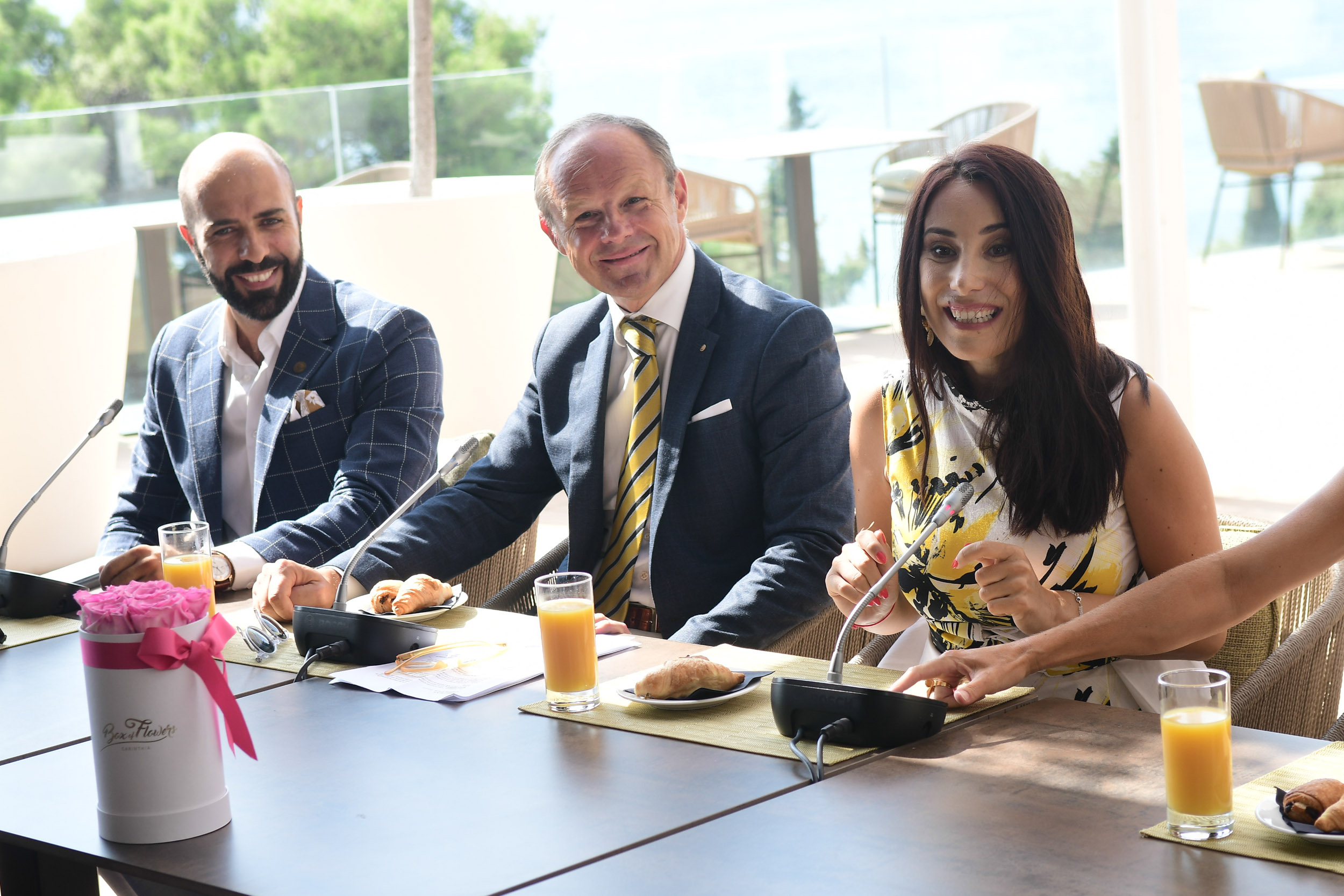
At the first event to take place on October 15, the partner country is Austria, and three more events are planned in the first half of 2021, when Split will be hosted by entrepreneurs from Romania, Italy and Slovenia.
"The event is open to all, we invite domestic business, but also the general public, provided that the number of available tickets will be defined later and in accordance with the recommendations of experts. Health is our number one priority, but entrepreneurship must not stop, we just need to invest a little more creativity to continue to connect and do business together in new circumstances", Monica concluded.
This event supports the association "Dancer with Cancer"and the organization is carried out with the support of the sponsor "Juelstox international", with a collection of jewelry from Sri Lanka and the Romanian brand "VeroSlim"
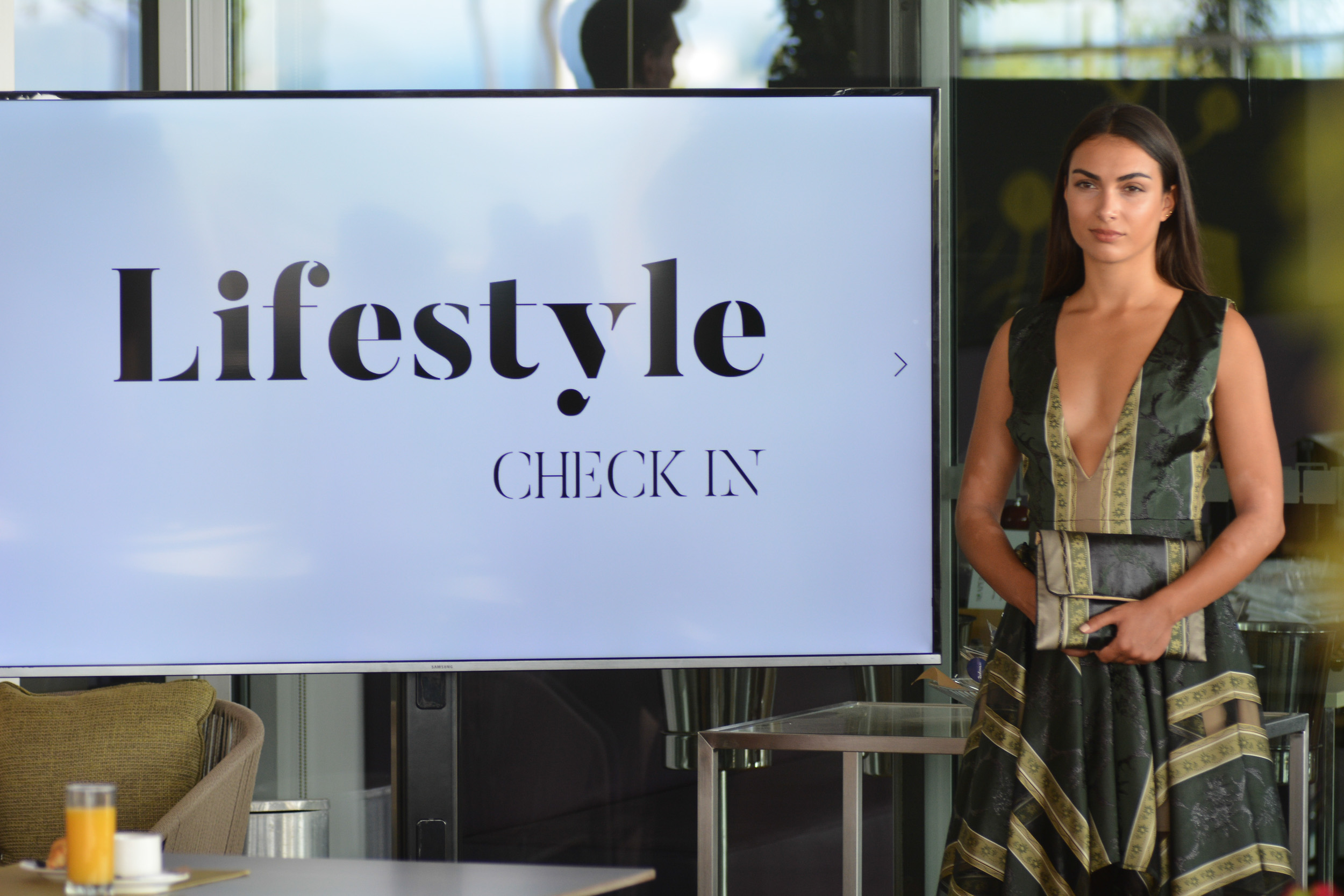
For the latest travel info, bookmark our main travel info article, which is updated daily.
Read the Croatian Travel Update in your language - now available in 24 languages
Croatia to be Among First Countries to Introduce Digital Nomad Visa: Here's What It Means
September 16, 2020 - Will Croatia be one of the first countries to introduce a digital nomad visa? A closer look into what this means for the country.
Vecernji List reports that digital nomads are people that work online, and all they really need is a high-speed internet connection. Thus, they can have a temporary office on the beach, in a cafe, on a train, in a park, or wherever the internet is fast and accessible enough. For this reason, digital nomads like to switch up the places and countries they work, because they are their own employer or are almost never obliged to meet their employers. They are mostly IT experts, writers, journalists, designers, or various creatives, and there are more and more jobs that can be done remotely due to technological advances and the development of online tools. Soon, digital nomads could become frequent Croatian guests, and Croatia could be one of the few countries in the world that will regulate the status of digital nomads and issue them a digital nomad visa.
The first step has been taken, the institute of digital nomads has been included in the proposal of the Foreigners Act, which had its first reading in Parliament on Friday, and should be debated and adopted by the end of the year and come into force at the beginning of 2021.
Credit is due to Dutch entrepreneur Jan De Jong, who is mostly responsible for bringing digital nomads to the attention of Croatian legislation. Namely, when asked what Croatia should do to improve its revenues, help Croatian companies survive, and make Croatia a year-round destination, not just a temporary visit for tourists in the three summer months, Jan answered that Croatia needs to regulate the rules on digital nomads, create a digital nomad visa, and open up the country to the world.
"Unfortunately, we have seen that many Croats leave Croatia solely for economic reasons. They didn't leave because they did not like the lifestyle in Croatia. Who wouldn't want to live in Croatia if you could live here on a German, Austrian, Swiss or Dutch salary? And that's where I see a big new industry emerging in Croatia - digital nomad tourism," wrote Jan De Jong and listed the advantages of Croatia, such as EU membership, great lifestyle, good internet, amazing climate, security, and affordable private health care.
Jan De Jong is interesting from several angles and has been on the Zagreb - Split route living his Croatian dream for almost 14 years. He arrived from the Netherlands to study and stayed. He started a business, successfully sold it, started a new one, and is just about to start another. But this time, we won’t tell you the story of Jan, his companies, his family, and business plans. This is the story of his mission to push Croatia in the direction that unites tourism and work, and of course, consequently generates additional revenues for the state and the economy.
Jan De Jong did not invent digital nomads, the nomad trend strengthened even before the corona crisis, but what he did was openly send a letter to Croatian Prime Minister Andrej Plenkovic on his Linkedin profile, urging him to address the issue of digital nomads and Croatia's position on that map. The Prime Minister reacted, invited him for an interview, listened to and acknowledged him, and enabled him to explain his initiative to the authorities in the Ministry of the Interior, the Ministry of Tourism, the Ministry of Labor, and the Ministry of Finance. In his open letter, Jan very simply explained why the digital nomad visa is needed.
"Imagine, give these digital nomads the right to come and work from Croatia to the maximum. Twelve months - regardless of citizenship according to the digital nomad visa. Many apartments that are empty out of season could find new tenants. The salaries that digital nomads earn will be spent in Croatia, resulting in a huge boost to our economy through consumption. If we open Croatia to tourists, why not open this country to highly paid digital nomads?" he wrote to the Prime Minister.
Namely, considering his own experience of living and working in Croatia, the development of technology, and the conditions of the corona crisis, Jan De Jong considers Croatia an ideal destination for work, for all those who can work remotely. The result of the first post, which highlights Croatia's advantages, achieved an impressive 300,000+ views, more than 4,000 likes, and a series of messages from people from all over the world, who are seriously considering temporarily moving to Croatia. The main question in the messages was how to run it and defining the conditions that need to be met. A wheel that would enable digital nomadism to be regulated in Croatia has been launched. As Jan De Jong said, he will have a meeting with the Minister of Finance and more concrete talks on models and solutions for digital nomadism in Croatia.
According to his estimate, by the end of the year, we could have a complete model on the table. However, property census, taxes, health care, insurance, accommodation, and residence needs to be resolved. When we talk about digital nomads, in a broader sense of the word, we are talking about those who need only an office and the Internet to work. In the corona crisis, digital nomads also became everyone who moved work in the office to their permanent place of residence, or, for example, to their parent's home or a holiday house. The story is simple when it comes to the migration of people within their own country, but it is a bit more complicated if we talk about residents of European Union countries and the wider European economic area who work remotely, change countries, and rent a house or apartment for an extended period in Croatia.
However, digital nomadism is greatly complicated when we talk about third-country nationals who would like to spend a long time, such as a year, in Croatia, and work for Google, Facebook, or another foreign company or are freelancers.
The first step, therefore, has been taken, and that is that the Government has passed a proposal for the Foreigners Act, which also includes the term digital nomads when it comes to a residence in Croatia for residents of third countries. The current law does not allow third-country nationals to move to Croatia temporarily, for a longer period of time. To begin with, they need a visa, and when it is granted, it is usually issued for a maximum of three months, and even then it is only a tourist visa, which means that legally, they should not even work in that period.
The new bill would allow digital nomads to work during those three months, and their temporary stay can last a maximum of 12 months, with the proviso that they can request it again only after six months of living abroad. For now, the property census has not been determined, and it is only certain that it will be higher than the one prescribed for, for example, family reunification or other reasons why third-country residents apply for long-term work or residence visas.
However, this part, as well as a number of other parameters that should be regulated such as taxes and insurance, should be adopted separately, by Government decree. As Jan De Jong said, a kind of working group, composed of representatives of the ministries, have started working, and so far, they have been informed about the various forms for countries like Estonia and their regulations. De Jong believes that we should look at Croatia's comparative advantages, that is, how Croatia can be more competitive. For example, who would be a good consumer in Croatia and with what salary, should be discussed.
Digital nomads could become a new revenue-generating trend, especially when it comes to younger age groups, those without families and school children, but perhaps also families who tend to move their lives from destination to destination. It was the corona crisis that pointed to these opportunities, and it seems that the Croatian Prime Minister, at least judging by the reaction on social media after meeting with Jan De Jong, saw an opportunity for Croatia, and said that Croatia would be among the first in the world to introduce a digital nomad visa. The idea of digital nomadism and remote work that would be an additional lure for tourists to come and spend in Croatia has already been embraced and is actively considered in some cities, such as Dubrovnik.
Mayor Mate Frankovic said that they are preparing a lot for this part of tourism. He will soon hold a conference in partnership with Saltwater Workspace and Total Croatia News on the topic of digital nomads, and they already have projects and spaces ready that would be suitable for nomads, from accommodation to coworking spaces. He especially praised his cooperation with one telecommunications company on high-speed internet, because high-speed internet, according to Frankovic, is a very important precondition for attracting these hybrid guest workers.
For the latest travel info, bookmark our main travel info article, which is updated daily.
Read the Croatian Travel Update in your language - now available in 24 languages
Join the Total Croatia Travel INFO Viber community.
After the Digital Nomad Visa, Time to Make Croatia Grow Again
September 8, 2020 - Fresh from his agreement with Prime Minister Plenkovic to introduce a digital nomad visa for Croatia, Dutch entrepreneur Jan de Jong and business partner Jerko Trogrlic turn their attention to agriculture and plans to Make Croatia Grow Again.
One of the best days of 2020 so far for me was on May 27, as I left Hvar early in the morning on the 05:30 and proceeded to Zagreb via three stops en route, visiting three of the most positive people I know in this country, Tanja Polegubic in Vrana, Feliks Lukas in Kasela, and first up, Jan de Jong in Solin. You can read more in What Happens in Croatia When Mindset Goes from Default Negative to Opportunity Positive?
Coffee on Jan's terrace overlooking the Adriatic with a truly magnificent view was a great way to start the day. He had two things on his mind. The first was the topic that we had agreed to discuss - digital nomad tourism. And the second was an idea he had regarding agriculture.
The digital nomad story took on a life of its own in the weeks after that very pleasant morning coffee. Six weeks later, Jan wrote an open letter to the Prime Minister asking him to introduce a digital nomad visa for Croatia. Just 44 days after that, PM Plenkovic tweeted a photo of his meeting in Jan, in which he committed to introducing the digital nomad visa, and it was introduced as an amendment to the Foreigners Act in Parliament the following day.
But the agricultural plan that Jan shared with me, together with his partner, award-winning PR guru Jerko Trgolic from Split, was equally inspiring.
Rather than say more than I should, I will refer you to Jan's latest LinkedIn post, where he has announced his intention to Make Croatia Grow Again...

Yes! We are going to invest big in Croatia. Not in apartments, not in villa's, not in hotels - but in high-tech agriculture
For so many years it has been hurting my eyes seeing how Croatia ?? - a country that used to feed an entire region - is today importing more food than that it is exporting.
Together with my business partner, Jerko Trogrlić, I am proud to share that today we have founded our company - CROP Hrvatska.
CROP Hrvatska will bring high-tech agriculture technology from the Netherlands to Croatia with one simple goal - to make Croatia grow again!
The first investment planned shall be a 5 hectare (50.000 m2) high-tech greenhouse for growing tomatoes - creating 70 new job opportunities in Croatia.
Follow CROP Hrvatska on #LinkedIn to stay up to date on any further developments.
CROP Hrvatska - Making Croatia grow again
Do you believe just like me that Croatia has the potential to help feed Europe?
P.s. How do you like our shoes?
#LivingTheCroatianDream #Entrepreneurship #Croatia #MakingCroatiaGrowAgain #Agriculture
I will be asking Jan a little more about CROP and his plans to Make Croatia Grow Again at the Poduzetnicki Mindset (Entrepreneurial Mindset) 2020 conference on Thursday, September 10, which will be streamed online. If interested, check out the exciting programme.
Entrepreneurial Mindset 2020 Conference Speakers: Meet Jan de Jong
September 4, 2020 - Next week sees the second edition of the Poduzetnik Mindset (Entrepreneurial Mindset) conference, a wave of positivity for Croatia 2.0. TCN will be interviewing a few entrepreneur speakers of the event. First up, Dalmatian Dutchman Jan de Jong.
Can a positive entrepreneurial mindset make a positive difference in Croatia? The growing eco-system of Croatian entrepreneurs certainly believes so. One of the most positive and inspiring conferences of 2019 was the inaugural Poduzetnik Mindset conference in Zagreb (read the TCN report on last year's event - Croatia 2.0 Cloaked in Positivity at Entrepreneurial Mindset Conference in Zagreb).
This year's event will be online due to the corona situation, but with some 10,000 people already registered, its reach will be a lot bigger than last year. Among the many great speakers is man of the moment, Dutch entrepreneur Jan de Jong from Split. Having sent an open letter to Prime Minister Andrej Plenkovic on July 11 asking for a digital nomad visa for Croatia, just 44 days later, the PM tweeted that his government would introduce such a visa, and it was formally introduced as an amendment to the Foreigners Act the following day.
TCN caught up with de Jong ahead of the conference to learn more about his entrepreneurial mindset and perspective at this exciting time for the development of Croatia 2.0.
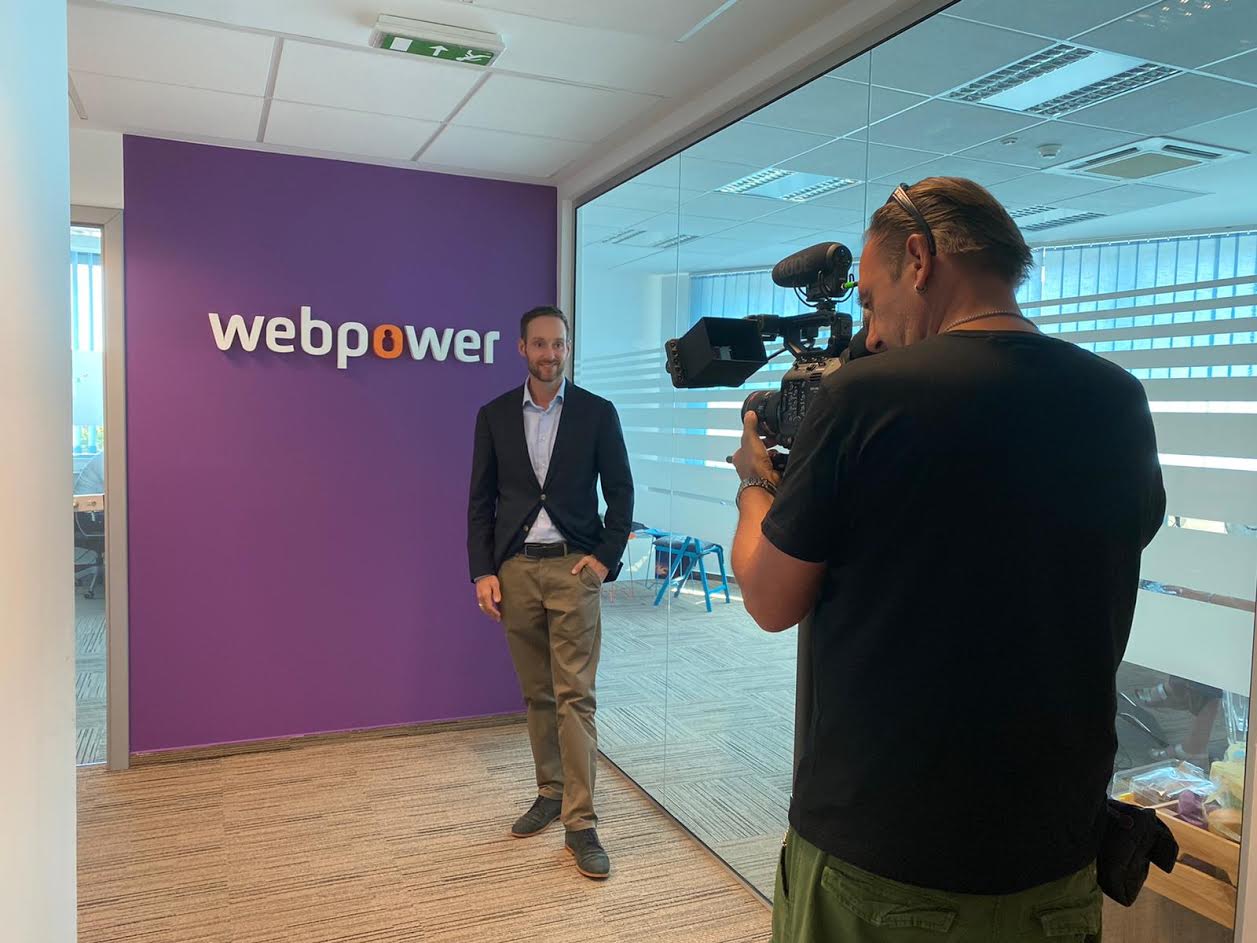
1. You make it look so easy. You arrived as a student, started a company which employed 400 people, sold it, then started another one which is doing very well. Meanwhile, you send an open letter to the Prime Minister asking for a digital nomad visa, and 6 weeks later it is introduced in Parliament. Croatian bureaucracy is supposed to be impossible. What's your secret?
My secret is: Ask nicely. You will be surprised how often people say “yes” when you just ask them nicely. Let me take you back 19 years. I was 17 years old and working in a call center where I had to sell products and services over the phone. With my voice as my only weapon, you give potential customers arguments why they should buy your product/service…all over the phone. What made the biggest difference between a well-performing and non-performing sales agent was that the well-performing sales agent would at the right moment kindly ask for acceptance of the proposal. Do we agree on this? <yes>
2. How is the perception of an entrepreneur different in Croatia and your native Holland?
I wrote about this once in one of my LinkedIn posts. I am sad that in Croatia entrepreneurs don’t always get the credit they deserve. From my point of view, entrepreneurs are often very passionate individuals, who dream of a better tomorrow and who strongly believe that their company can help us all to get to that “better tomorrow” by providing their products and/or services.
Entrepreneurs are individuals who cheer for each other’s successes. Individuals who support each other to reach goals and avoid obstacles. You being a winner doesn’t make me a loser. We can all win – through collaboration.
I am always super excited when I meet young entrepreneurs. I will be the first one to offer a helping hand where I can. In my LinkedIn post I wrote that (successful) Dutch entrepreneurs are often seen as show-offs, successful American entrepreneurs are looked at as stars and successful Croatian entrepreneurs are looked at as semi-criminals.
You hear people in Croatia gossiping. Who did he have to bribe to get that contract? You don’t want to ask a successful entrepreneur how he made his first million. He probably pays really bad salaries…profiting off of his poor, hard-working employees.
It’s sad that this happens, because if I would only look at the amount of time I have invested into my businesses to get to where I am – I should already almost be entitled to retire – and I am only 36 years young.

(Photo credit Drazen Tomic)
3. What are the advantages and disadvantages of being a foreign, rather than a Croatian entrepreneur here?
I believe its always good if you have the ability to differentiate yourself from your competition. Differentiating yourself and your company you can do in many ways, but in my case – being Dutch in Croatia already makes me different. At least, most of my meetings we can start with a casual talk and answering the question “How on Earth did you end up in Croatia?”
4. Your LinkedIn following is growing and it has become a beacon of social media positivity. You claim that you only see opportunities here, while so many are emigrating. Why are others not seeing what you see?
Because many people have blurred vision as a result of being surrounded by toxic people who also have blurred vision. If you spend a lot of time with people who only complain about how the weather in Ireland is better than in Croatia – then before you know it, you will start believing that Ireland is a nice sunny place. Whatever people complain about, whatever people think is not good enough – all of those are business opportunities. It just takes the right entrepreneur to start solving those issues and start charging for that solution.
I believe that starting a business in the Netherlands is equally difficult as starting a business in Croatia – just for different reasons. The Dutch market is known for being very innovative, with a lot of competition and competition that has big budgets to fight you. In Croatia, you have a chance to soon become a market leader if you find a product or service that allows you to be a first-mover in Croatia.
I am all about being first with something and using first-mover advantage. When I started my contact center business in 2007, we were among the first professional call centers in Croatia. When I started Webpower Adria in 2016, we became the first locally present company specialized in email marketing & marketing automation. Both industries were already highly saturated in the Netherlands with strong local competition. In the Netherlands, I would not have stood a chance by opening such businesses. In Croatia, I became market leader with both companies.
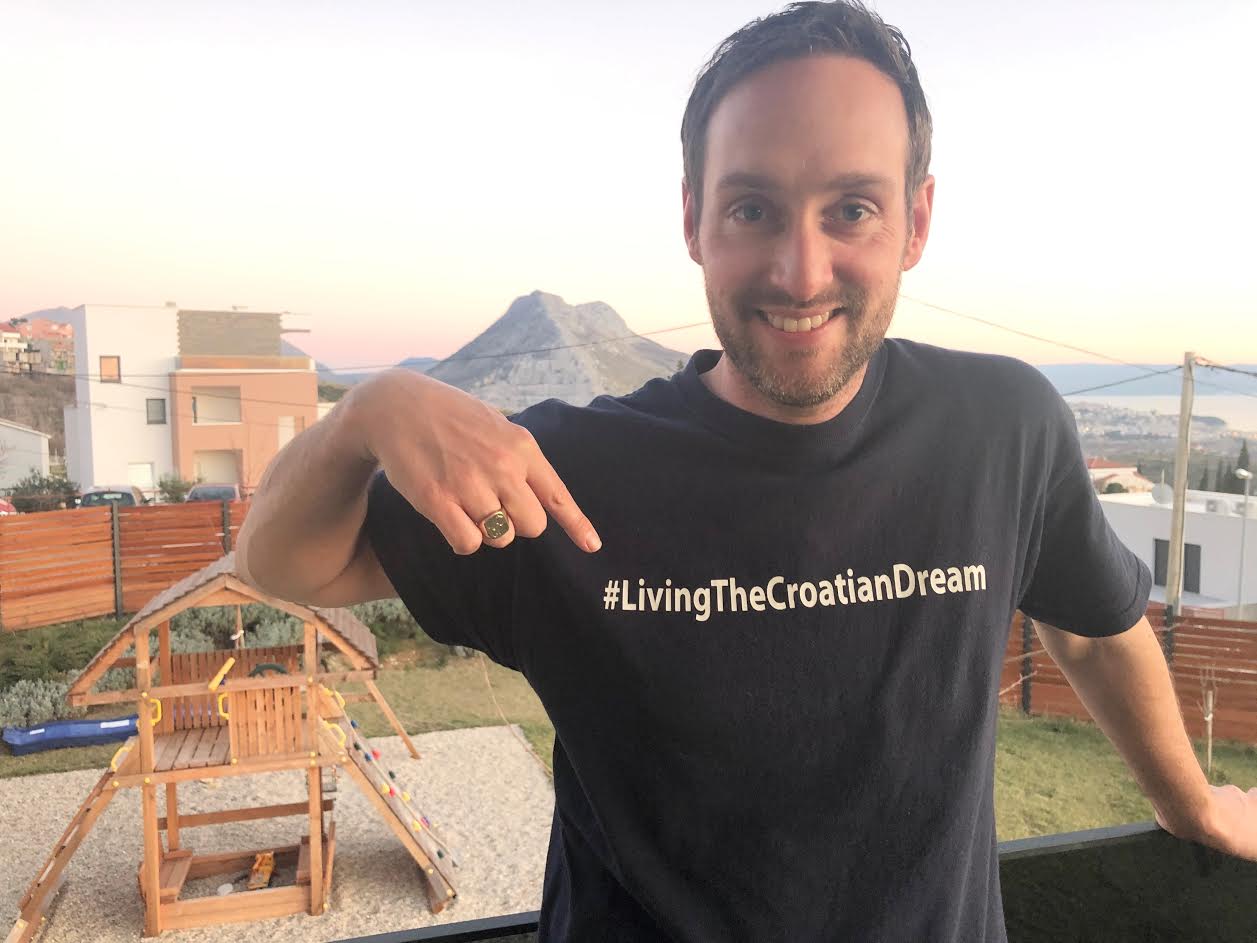
5. Are you seeing much change in the entrepreneurial scene in Croatia over the last couple of years? In which ways, if yes?
Yes! I see more and more young entrepreneurs entering the scene and building amazing companies that are solving global problems. Take companies like Include from Solin with their smart bench, Agrivi revolutionizing the AgriTech scene, Nanobit. We even have our first unicorn with Infobip. There have been more and more success stories in Croatia – which creates wonderful employment opportunities in Croatia.
6. The eco-system of Croatia's entrepreneurs is getting stronger, and initiatives such as Glas Poduzetnika have certainly helped. What should we be focusing on in the next year or two to improve things in your opinion?
I am supporting the efforts made by Udruga Glas Poduzetnika from day one simply because I believe that governments should listen more to their entrepreneurs. Entrepreneurs are the driving force of every economy and I am putting my money on Croatia's entrepreneurs to move this country forward.
Our focus should be on making sure that we don't create a situation where it looks like “entrepreneurs against the government“. Both entrepreneurs and the government should want the same for Croatia. Being able to have constructive conversations between entrepreneurs and the government – where we can see Croatia progress as a result of joint efforts - that will be a key component in making Croatia a better country to live in for the next generation.
7. And I am sure a lot of our readers will be curious - what's next for Jan de Jong once you have finished with the digital nomad visa?
My heart right away wanted to share some huge news, but my mind was stronger this time. I am currently working on something really big and exciting, something that will require large capital investments in Croatia, something that will help Croatia to increase export figures, something that will provide employment to many people, something that won’t easily be affected by events like Covid-19, and something that Croatia is traditionally very strong at.
Please, be patient. I hope I will be able to make a big announcement soon. If you want to be among the first ones to know what I am working on…follow me on LinkedIn.
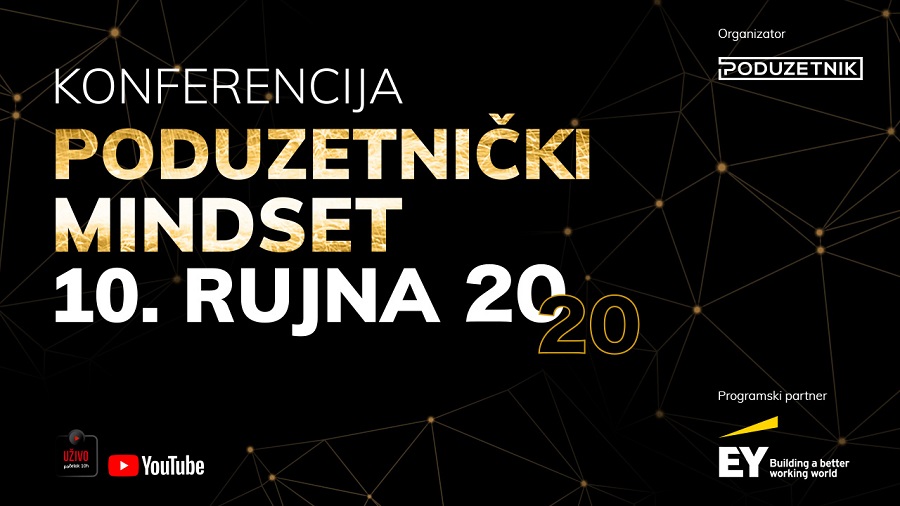
To learn more about the virtual Poduzetnik Mindset 2020 conference on September 10 - and to register - visit the official website.
Connecting Croatian Bubbles of Positivity for Digital Nomads and Beyond
September 1, 2020 - There are several Croatian bubbles of positivity which are starting to connect, and the entrepreneurial eco-system is getting stronger.
Last year I wrote an article called The 3 Stages of Learning for Foreigners in Croatia: Love, Hate & Nirvana. It took me about 15 years to get to the final stage, but it was well worth the journey.
To save the rest of you lots of time, the essential things you need to figure out is to accept the things you cannot change, have the courage to change the things you can, and have the wisdom to know the difference. Then make your peace with the Mighty State of Uhljebistan in the same way that a Norwegian alcoholic pays his alcohol tax to be able to drink and enjoy the wonderful life in Norway. Simply pay the uhljeb tax here, the price of living in Croatia, arguably the lifestyle capital of Europe.
And surround yourself with positive people. In a society which is default negative, it is easy to assume that there are no positive stories in Croatia, as they are rarely told. But the number of positive people doing incredible things here is astounding.
Reaction to the article - and similar ones I wrote - was significant, but not a reaction which I had anticipated. It emerged that there were many positive people here in Croatia who were living in their own bubbles all over Croatia. They loved Croatia and the lifestyle but despised the system, so they kept a low profile, quietly went around their business, and enjoyed their own little Croatian bubble, which consisted of their friends, family, nature and their home.
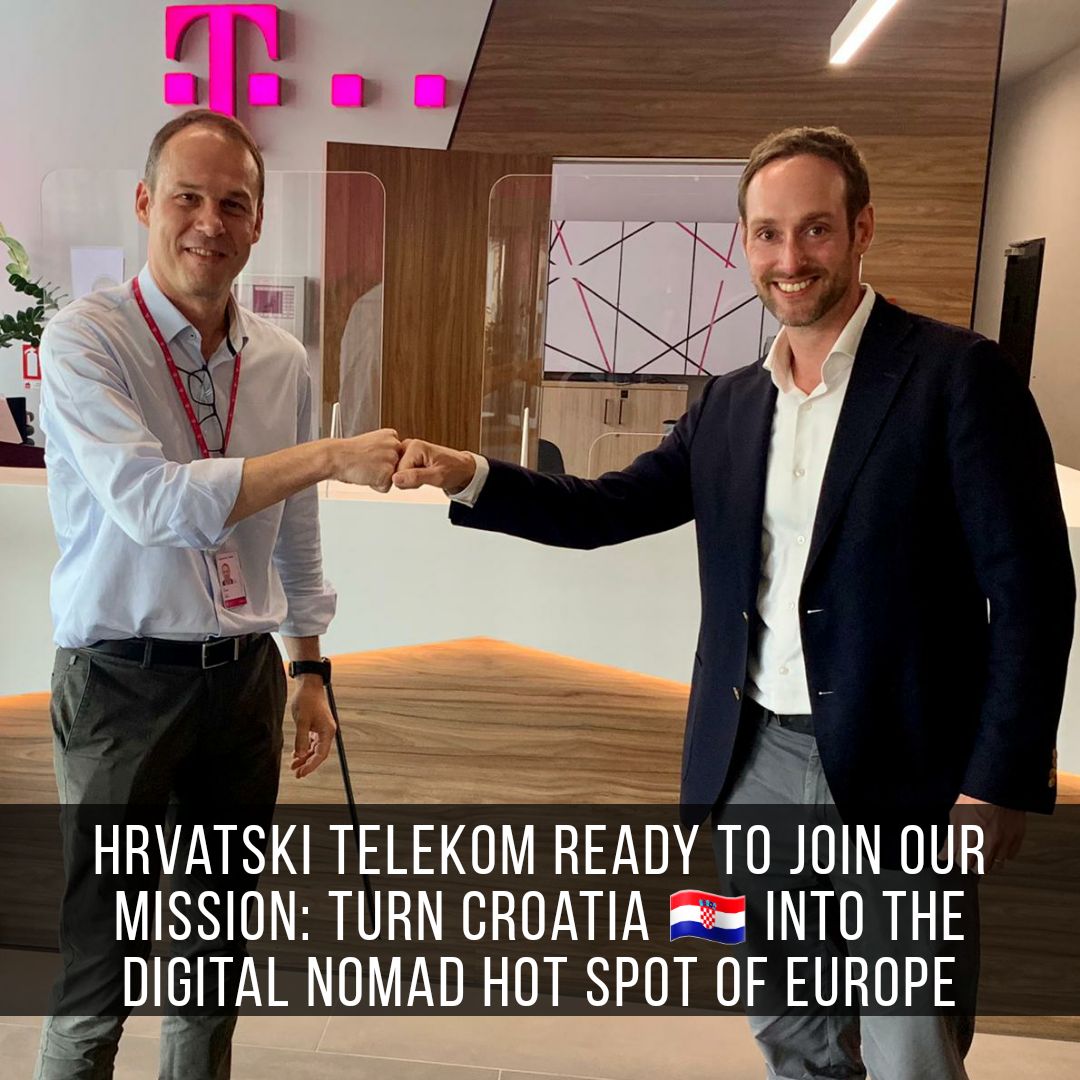
As I wrote more articles of the same ilk, more of these bubbles started to connect to TCN, and I was amazed at the success stories that exist here right under our noses that few know about and even less celebrate. Simply by telling and celebrating these stories will have an impact on the default negative mindset. What is particularly exciting is that these bubbles are starting to connect now, to become aware of each other. Initiatives such as Glas Poduzetnika (The Voice of Entrepreneurs) is one such example, but there are many others. And the more they connect, the more positive stories come to light, the more the feeling that perhaps things could change in Croatia.
The whole issue of digital nomad tourism and the new digital nomad visa is a case in point. It was an industry that was new to me 18 months ago, and when TCN first started writing about it last year, the response domestically was lukewarm.
That lukewarm reaction has heated up considerably in the last couple of weeks. Back in January, I had a meeting with a Croatian partner about a digital nomad project, to be met by a blank face. That same partner called last week to urgently schedule a meeting to put into action the science fiction I had proposed just 8 months ago. These days, the inbox is filling with enquiries on how to join the digital nomad opportunity. SO MANY people with really interesting perspectives and their own Croatian bubbles of positivity have also got in touch, and it really feels that this is building up a head of steam for real change.
The big breakthrough, of course, was the spectacular progress of the planned introduction of the digital nomad visa, thanks to Dutch entrepreneur Jan de Jong, who seems to have a knack of making Croatian bureaucracy look easy. Just 45 days after an open letter to Prime Minister Andrej Plenkovic, and following meetings with the PM and Interior Ministry, a digital nomad visa was brought to Parliament with the full support of the cabinet as an amendment to the Foreigners Act.
Jan's success is stunning in the Croatian context, but the fun is just starting for him, I suspect. We caught up for a beer after his meeting with PM Plenkovic last week, and he told me of all the people contacting him wanting to contribute, to share ideas, to get some free promotion. Among them, more Croatian bubbles of positivity which now see an opportunity for change and want to connect.
Jan's latest LinkedIn post shows another high-profile ally on board with the digital nomad initiative, Kostas Nebis, President and CEO of Hrvatski Telekom, as Jan explains:
A few hours after my meeting with our Prime Minister Andrej Plenkovic, I had the pleasure of meeting Kostas Nebis - President & CEO of Hrvatski Telekom together with his team.
By Croatia becoming among the first countries in the world to welcome digital nomads, amazing new business opportunities will open up for Croatia's entrepreneurs.
Thank you Kostas Nebis for your kind invitation and constructive meeting where you have shown that Hrvatski Telekom is ready to do its part and contribute to our joint mission of turning Croatia into the European hot spot for hosting digital nomads.
Svijet boljih mogućnosti
#LivingTheCroatianDream #entrepreneurship #Croatia #digitalnomads
There is a growing swell of support from the entrepreneurs of Croatia - both local and foreign - for positive change. The eco-system out of the spotlight is getting stronger by the day, and slowly - at least I think so - a few more people are starting to believe that change is coming at last to Croatia. Of course there is a long way to go to overturn that default negative mindset, but these are truly exciting times.
Have you connected your bubble of positivity yet?
For the latest travel info, bookmark our main travel info article, which is updated daily.
Read the Croatian Travel Update in your language - now available in 24 languages


